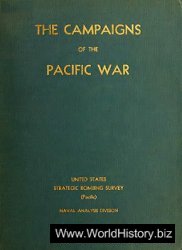The Cold War ended when Soviet identity shifted, and Reagan refused to reciprocate Soviet concessions until he believed that this was occurring.37 This provides a fundamental contrast with the earlier detente. The change in Soviet policy and identity, furthermore, grew out of comparisons and interactions with the West.
Mikhail Gorbachev and his colleagues realized that the Soviet system was failing. But this failure was relative not absolute. The economy was not collapsing, indeed it was growing a bit. There was no starvation or privation, and despite the concern ofSoviet military leaders, the large and secure nuclear arsenal was adequate to deter an American attack. The inadequacies of the Soviet performance appeared only when compared to the capitalist world. This had always been true, but in the past Soviet leaders could tell themselves that they were catching up. The contrast between East and West Germany was particularly striking since many of the other excuses of the weak socialist performance were implausible here. Furthermore, increased travel and contacts with the West meant that more members of the Soviet elite understood the situation, which undermined the leaders’ confidence in their system and the beliefs that had produced it. Competition in the Third World by military activities, foreign aid, or serving as a model of development was obviously being crippled. Since the Third World represented the future, impending failure there cast doubt on Soviet prospects. Even more centrally, the knowledge that socialism had failed to out-compete capitalism struck at the core of Soviet beliefs about themselves and the world.
To reform the Soviet economy, Gorbachev needed better relations with the West in order to reduce military spending and gain access to Western investment and technology. Thus, he began a series of initiatives and concessions, mostly dealing with arms control. These were accompanied by a basic shift in outlook toward world politics, summarized in the phrase "new thinking." Whether these ideas were largely rationalizations for policies forced on him by pressing circumstances or whether they were autonomous and more freely adopted is heatedly debated but is ofless importance here than the fact that the new thinking implicitly if not explicitly contradicted key elements of Soviet identity. Not only was lowering international tensions given priority over supporting progressive movements, but the sources of tension were located in the traditional dynamics of international conflict, especially misperceptions and spirals of unnecessary hostility and fears. In arguing that Soviet isolation and Western belligerence were largely brought on by ill-advised Soviet actions, Gorbachev adopted what IR scholars call a security dilemma analysis. Although not new to Western observers, this line of thought was not only innovative in the Soviet context but constituted a denial ofthe crucial idea that politics pivots around class conflict. Thus, at the XXVIIth Party Congress in 1986, for the first time there was no mention of the "world revolutionary process," and by December 1988 Gorbachev abandoned talk of defending the "Socialist Commonwealth," of supporting progressive revolutions, and of the dangers from "American imperialism."38
Once Gorbachev and his colleagues concluded that they needed a solid rapprochement with the West, it was hard for them to maintain that the difference between the Soviet and American social systems had to be central to their relationship. So it is no accident that Yegor Ligachev, who opposed Gorbachev’s policies, claimed that "We proceed from the class nature of international relations. [Any other approach] only confuses the Soviet people and our friends abroad."39 Once class conflict was dropped, little remained of the unique Soviet identity and mission in the world. Even if the Soviets thought that their system was more humane and progressive than capitalism, there was no reason to believe that Soviet security required keeping the West on the defensive, and little need to resist concessions on arms control or maintain Soviet clients in the Third World. As Marx and Engels had said, the revolutionizing power of capitalism was so great that under its influence "All that is solid melts into air. "40
Gorbachev famously said that he was going to do something terrible to the United States - he was going to deprive it of an enemy. In fact, what is striking is how little the United States actually changed after the Cold War. While
Soviet identity was formed in opposition to a capitalist world, American identity did not need Communism, and the United States came out of the Cold War with little more knowledge of itself or others then it had at the start. Whether the American identity would have withstood prolonged reversals abroad or falling behind the USSR in economic and technological competition is an interesting question. Certainly, American self-confidence was shaken at a number of points, especially in the late 1950s and early 1960s. But having deeper roots in its own society and history, the American identity had a resilience that the Soviet one did not. Although American society changed markedly during the Cold War, it is far from clear that it would have been much different had those years been peaceful or characterized by conflict with a different adversary. Furthermore, to the extent that American identity did change during the Cold War, there was a broadening of sense of self, a greater tolerance for diversity, and, at least until the late 1970s, the acceptance of a greater role for government in many spheres of life, just the opposite of what we would expect if the Cold War had led to an exaggeration of those features that separated the United States from the USSR.
It is not hindsight that leads to the conclusion that the asymmetries outlined earlier were crucial. Maintaining Soviet identity depended on the future unfolding according to plan: a cooperative worker’s society was to be put in place, the Soviet Union was to modernize, class conflict would dominate until the workers prevailed, and the superiority of Communism would be demonstrated by overtaking the West and by the triumph of revolutions abroad. Until these hopes were dashed only limited detentes were possible, and these would be undermined by the refusal of either side to give up the competition. Conversely, when the hopes faded and politics was not seen as dominated by class conflict, there was no reason for the Soviet Union to either menace or fear the US, and once American leaders concluded that the Soviet domestic system was changing, issues that had bedeviled the relationship for so long were easily resolved. The Cold War ended only when one side’s identity did; it could not have ended peacefully otherwise.




 World History
World History









